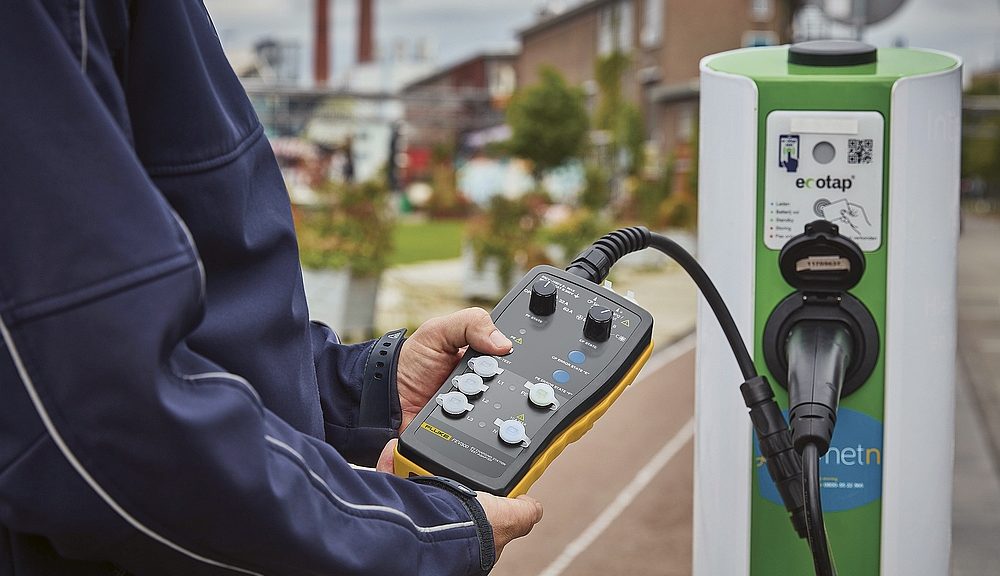- Fluke’s FEV300 adapter is designed for the installation and maintenance of electric vehicle charging stations (EVCS).
- Capable of simulating an electric vehicle connected to the EVCS, this tool safely tests the output voltage of a Mode 3 AC charging station equipped with Type 1 or Type 2 connectors, in accordance with IEC/HD 60364-7-722 and IEC/EN 61851-1.
- This adapter is intended for installation and routine mandatory testing of Mode 3 EVCS, which provide fast charging from 3.7 kW to 22 kW.
Electric Vehicle Market Growth
According to Bloomberg’s 2022 Annual Report, there are approximately 20 million electric vehicles on the road worldwide. With rising fuel prices and new fuel economy regulations taking effect in many countries, the adoption of electric vehicles as an alternative to Internal Combustion Engine vehicles is expected to increase significantly. Bloomberg estimates that the share of electric vehicles in the new car market will reach 40-50% in the UK, France and Germany by 2025.
According to the European Commission’s Alternative Fuels Observatory, the infrastructure of electric vehicle charging stations in Europe doubled between 2020 and 2021, and is expected to see the same increase in volume in 2022.
Electric vehicle charging stations (EVCS) are key to reducing vehicle charging times. 24 to 36 hours may be required to recharge a typical compact vehicle’s battery from the home power grid. A charging station provides single or three-phase power with 230 or 400 V mains voltage to charge electric vehicles much faster. For safety reasons, communication between the charging station and the connected electric vehicle must be established before any output voltage is provided.
Testing the charging stations
EVCSs must be tested at regular intervals. There are local safety regulations, international and European standards, including IEC/HD 60364-6, IEC/HD 60364-7-722 and IEC/EN 61851-1, to which the installation and testing must also conform. The safety and communication functions of an EVCS must be tested to ensure the safety and efficiency of the electrical system for safe use by electric vehicle owners.
Required tests include conductor continuity, insulation resistance, automatic power disconnection (loop impedance, RCD or RDC-DD test), and several functional tests. All of these can be performed with a multi-function tester (MFT) such as the Fluke 1663 or Fluke 1664FC.
The FEV300 adapter is compatible with the major Fluke MFTs used for EVCS installation and commissioning, as well as for routine maintenance testing. It can also be used with Fluke’s line of multimeters or oscilloscopes for diagnosis and troubleshooting. It has essential safety features such as a touch electrode function, which can detect a potentially dangerous ground fault, and safety sockets with plastic covers to protect the connectors in the event of rain.






